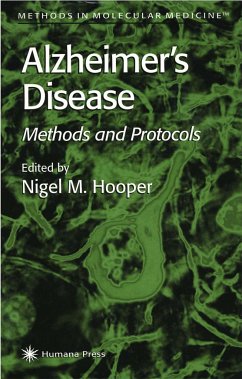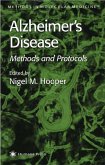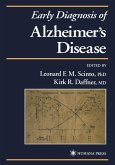Alzheimer's disease is the most common cause of senile dementia. Since the discovery in 1984 of the amyloid ?-peptide (A?) as the core protein of the senile plaques present in the brains of Alzheimer's disease sufferers, an immense amount of research has gone into mapping out the molecular basis of this debilitating disease. The aim of Alzheimer's Disease: Methods and Protocols is to bring together the main biochemical, cell biological, and molecular biological techniques and approaches that are being used to investigate the molecular basis of Alzheimer's disease. This volume begins with chapters of an introductory/ review nature. Chapter 1 provides a historical introduction to Alzheimer's d- ease with particular emphasis on the central role played by A? and its re- tion to tau. Chapter 2 examines the genetics underlying this neurodegenerative disease, covering the amyloid precursor protein, apolipoprotein E, and the presenilins. Chapter 3 presents an overview of currently available therapeutic agents and prospects for drugs of the future.
Hinweis: Dieser Artikel kann nur an eine deutsche Lieferadresse ausgeliefert werden.
Hinweis: Dieser Artikel kann nur an eine deutsche Lieferadresse ausgeliefert werden.
"...this volume contains well-written chapters containing factual insights and useful clarifications. An example is David Allsop's introduction of the field through the orthodox views of the amyloid cascade hypothesis that in the exposition of others is often quite simplistic, but here is presented with complexity and wisdom deserving of serious consideration....they are provided in a format that invites the reader to undertake studies and examine the underpinnings of the subject beyond that found in the primary publications and not covered in such a practical manner in other reviews."- Journal of Molecular Neuroscience








